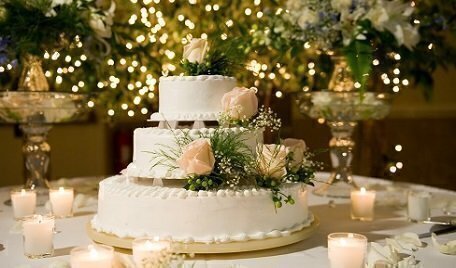A divided Supreme Court said on Monday that a Colorado baker and cake artist was wrongly censored by the state of Colorado for refusing to make a cake for a same-sex couple’s wedding party.
 In the 7-2 decision, Justice Anthony Kennedy said in Masterpiece Cakeshop, Ltd. v. Colorado Civil Rights Commission that the Colorado Rights Commission incorrectly acted in its considerations that Masterpiece Cakeshop violated the Colorado Anti-Discrimination Act (or CADA).
In the 7-2 decision, Justice Anthony Kennedy said in Masterpiece Cakeshop, Ltd. v. Colorado Civil Rights Commission that the Colorado Rights Commission incorrectly acted in its considerations that Masterpiece Cakeshop violated the Colorado Anti-Discrimination Act (or CADA).
“The laws and the Constitution can, and in some instances must, protect gay persons and gay couples in the exercise of their civil rights, but religious and philosophical objections to gay marriage are protected views and in some instances protected forms of expression,” Kennedy said.
Kennedy said the baker, Jack Phillips, was “entitled to a neutral and respectful consideration of his claims in all the circumstances of the case,” but the statements of some commission officials cast doubts on the neutrality of their decision.
“That consideration was compromised, however, by the Commission’s treatment of Phillips’ case, which showed elements of a clear and impermissible hostility toward the sincere religious beliefs motivating his objection,” Kennedy said. For those and other reasons, Kennedy said, “the Commission’s treatment of Phillips’ case violated the State’s duty under the First Amendment not to base laws or regulations on hostility to a religion or religious viewpoint.”
Phillips and his wife own a business in Colorado, where as a cake artist he designs cakes. In their court petition, Phillips’ attorneys note that due to his beliefs, Phillips had also declined to make cakes that celebrate Halloween, anti-American or anti-family themes, atheism, racism, or indecency. When approached by a same-sex couple about making a cake for their wedding, Phillips declined to design a cake with that message, but he offered to make any another cake for them that didn’t conflict with his beliefs.
Phillips had argued that the CADA should be interpreted to allow him to refuse to design the cake under the Constitution’s compelled speech and free exercise of religion doctrines. A Colorado Appeals Court disagreed, upholding the commission’s ruling that Phillips’ cake designing was conduct and not free speech, and that the commission’s order didn’t violate the Constitution’s free exercise of religion clause.
Justice Ginsburg, in her dissent, said that conduct of several commissioners wasn’t enough of a factor to overturn the Colorado court’s ruling.
“Statements made at the Commission’s public hearings on Phillips’ case provide no firmer support for the Court’s holding today. Whatever one may think of the statements in historical context, I see no reason why the comments of one or two Commissioners should be taken to overcome Phillips’ refusal to sell a wedding cake,” Ginsburg said.







